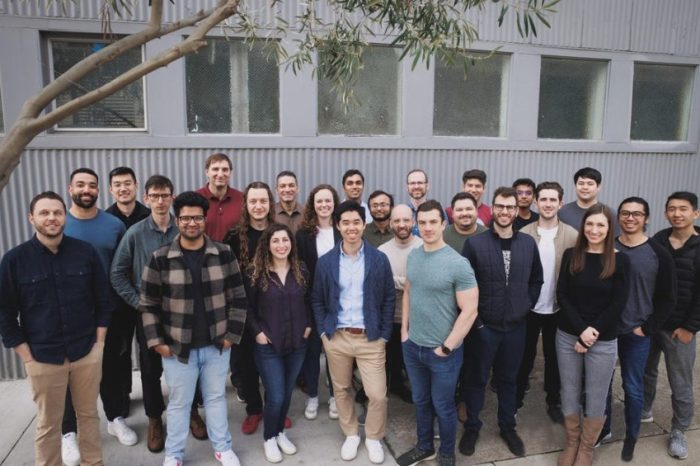Top startup news for Tuesday, March 14, 2023: Meta, Anthropic, Flat6Labs, Google, Mitiga, and OpenAI

Good evening! Below are some of the top tech startup news stories for Tuesday, March 14, 2023.
Google brings AI-powered features to Gmail and Docs as AI race heats up
With the soaring popularity of OpenAI ChatGPT, Alphabet’s Google is deepening its push into generative AI with the release of features that will let users create text in Gmail and Docs using its AI technology.
Google has announced that it is experimenting with several AI products and offering them to a select group of Workspace users, which comprises Google’s productivity tools and Gmail.
Google, a subsidiary of Alphabet, unveiled a fresh range of AI-powered tools for its cloud, collaboration, and Gmail software on Tuesday. This move comes as the tech giant takes on Microsoft, just a few days before its rival is expected to make a similar announcement. The company also unveiled what it called a ‘magic wand’ to draft documents as the AI race tightens
“Whether you’re a busy HR professional who needs to create customized job descriptions, or a parent drafting the invitation for your child’s pirate-themed birthday party, Workspace saves you the time and effort of writing that first version,” Johanna Voolich Wright, vice president of product for Google Workspace, wrote in a blog post. “Simply type a topic you’d like to write about, and a draft will instantly be generated for you.”
Meta to lay off 10,000 employees in the second round of job cuts, just four months after it let go 11,000 employees
Facebook-parent company Meta announced on Tuesday it would cut 10,000 jobs, just four months after it let go 11,000 employees, making the social giant the first Big Tech company to announce a second round of mass layoffs.
In a message to staff., Meta CEO said: “We expect to reduce our team size by around 10,000 people and to close around 5,000 additional open roles that we haven’t yet hired.”
The announcement comes just two weeks ago, the Washington Post reported that Facebook’s parent company Meta Platforms was planning a fresh round of layoffs that could affect thousands of workers just a few weeks after CEO Mark Zuckerberg promised no more layoffs.
Meanwhile, according to the layoffs tracking site layoffs.fyi, the tech sector has laid off 128,202 tech workers since the start of 2022.
The latest layoff further underscores Zuckerberg’s push to turn 2023 into the “Year of Efficiency” with promised cost cuts of $5 billion in expenses to between $89 billion and $95 billion. He has said that he would “take accountability” for the company’s previously announced cost-cutting plans, saying that he views layoffs “as a last resort.”
“We’re restructuring teams to increase our efficiency,” Zuckerberg said last fall when Meta announced layoffs. “But these measures alone won’t bring our expenses in line with our revenue growth, so I’ve also made the hard decision to let people go.”
On November 9, Facebook’s Meta laid off 13% of its total workforce, or more than 11,000 employees, as it struggled with soaring costs and a weak advertising market. The company also lost $700 billion of its value over a risky metaverse bet.
Meta said the affected employees will receive 16 weeks of pay plus two additional weeks for every year of service, Zuckerberg said. Meta will cover health insurance for six months. Zuckerberg also said the company spent around $3.7 billion in 2022 in paying out severance as well as terminating office leases.
Samsung Next backs a $45M investment in Israeli startup Mitiga to transform incident response for cloud and SaaS environments
Mitiga is the first cloud-based solution for Incident Readiness and Response in the cloud and hybrid environments. Mitiga’s cloud-based solution for cloud and hybrid environments dramatically improves efficiencies for incident readiness and response by aligning around the client’s goals. The startup was founded about four years ago by Tal Mozes (CEO), Ariel Parnes (COO), and Ofer Maor (CTO).
Today, Mitiga announced it has closed a $45 million Series A Round led by ClearSky Security, with participation from Samsung Next and existing investors Blackstone, Atlantic Bridge, and DNX. Mitiga will use the fresh capital infusion to accelerate its growth, helping to meet the high demand for cloud incident response services from the overwhelming number of organizations that now rely on cloud and SaaS environments.
This news comes on the heels of Mandiant’s former President/COO, John Watters, joining Mitiga as an independent board member.
“When we founded Mitiga, we had one goal in mind—to help organizations accelerate their responses to the rising tide of cloud and SaaS attacks,” stated Tal Mozes, co-founder and CEO, Mitiga. “We knew we could do it better than traditional incident response (IR) solutions because they’re reactive by nature, and tremendously time-consuming. Our proactive and automated approach enables organizations that experience cloud and SaaS breaches to respond immediately and recover faster than any other solution on the market. We are thrilled to include Samsung Next as one of our investors and look forward to our next growth phase in 2023 and beyond.”
Flat6Labs launches new $95 million venture fund to invest in early-stage African tech startups
Flat6Labs, a Middle East and North Africa (MENA) region’s leading seed and early-stage venture capital firm, today announced the launch of a new $95 million venture capital fund to expand its footprint and impact in Africa. Flat6Labs said it will use the fund to nurture the growth and development of early-stage tech startups on the African continent.
Headquartered in Egypt, the Africa Seed Fund (ASF) will focus on three main investment territories in Africa: North Africa, West Africa, and East Africa. Flat6Labs will be extending its reach into several new territories including Nigeria, Ghana, Kenya, Morocco, and Senegal, amongst others.
The Africa Seed Fund (ASF) was created by Flat6Labs, project (SAIS), with the support of the GIZ on behalf of the German Government and through the Egyptian Agricultural Innovation Project (AIP) and Scaling Digital Agricultural Innovations through Start-ups project (SAIS).
The ASF will be led by Ramez El-Serafy and Dina el-Shenoufy as General Partners for the fund. The fund will invest in more than 160 early-stage startups over the next five years that operate in the technology sector in Africa, with a focus on impactful sectors that accelerate digital inclusion through the use of information technologies and industries which contribute to addressing social and environmental challenges, such as HealthTech, FinTech, EdTech, GreenTech, AgriTech, ClimateTech, and other sectors.
Founded 12 years ago, Flat6Labs has a track record in carefully vetting out and investing in promising startups in North Africa since it was founded 12 years ago, with more than $16M invested in startups, and over $191M raised in follow-on funding while creating more than 2,500 direct jobs and 80,000 indirect jobs through its first two funds in Egypt and Tunisia.
OpenAI launches GPT-4 with better accuracy, claims it can beat 90% of humans on the SAT
After a hugely successful launch of its ChatGpT in November, OpenAI today announced the launch of the latest version of its primary large language model, GPT-4. Unlike its predecessors, OpenAI said the new GPT-4 is a large multimodal model that can solve difficult problems with greater accuracy, adding that GPT-4 is the company’s most advanced system to date, producing safer and more useful responses.
Thanks to its broader general knowledge and problem-solving abilities, the Microsoft-backed AI startup said the new GPT-4 exhibits “human-level performance” on many professional tests. In one test, OpenAI claimed that GPT-4 performed at the 90th percentile on a simulated bar exam, the 89th percentile on the SAT Math exam, and the 93rd percentile on an SAT reading exam.
ChatGPT-4 is also “larger” than previous versions. This mean means it has been trained on larger datasets and has more weights in its model file, which also makes it more expensive to run as well. Microsoft said on Tuesday that Bing’s AI chatbot also uses GPT-4.
In a blog post on its website, OpenAI also shared a side-by-side comparison of ChatGPT and GPT-4 to show how GPT-4 surpasses ChatGPT in its advanced reasoning capabilities.
OpenAI also explained that it used Microsoft Azure to train the model. As we reported on multiple occasions, Redmond-based Microsoft a $1 billion in 2019 followed by another $10 billion in exchange for a 49% stake in the company.
Alphabet-backed Anthropic launches Claude, a large language model to compete with OpenAI’s ChatGPT
Just last week, we wrote about Anthropic after the Alphabet-backed AI startup announced it was close to raising $300 million from investors at around a $5 billion valuation. Co-founded by former OpenAI employees, Anthropic came into the spotlight following the popularity of ChatGPT. Now Anthropic team has just released its own chatbot to take on ChatGPT, the popular chatbot developed by their former employer.
Today, Anthropic announced the launch of Claude, a large language model that competes directly with OpenAI’s ChatGPT. Claude is designed to perform tasks similar to ChatGPT’s. Its main function is to generate text that is similar to human writing when prompted, regardless of the task at hand, be it editing legal contracts or writing computer code.
However, Anthropic, which was co-founded by OpenAI’s former VP of research Dario Amodei and his sister Daniela Amodei, has put a focus on producing AI systems that are less “woke” and unlikely to generate offensive or dangerous content, such as instructions for computer hacking or making weapons, than other systems.
Generative Pre-training Transformer (GPT) is a type of language model developed by OpenAI. It is a neural network-based model that is trained to generate human-like text by predicting the next word in a sequence based on the words that come before it. ChatGPT and other generative AI tools use a large language model (LLM) technique to generate text in a chat-like or conversational style.
Given the number of resources used by these language models, only a few LLM-based products are actually making money. But new LLM products are beginning to come to the markets.
The popularity of OpenAI ChatGPT has now led to a boom in the adoption of generative artificial intelligence (AI) and big tech companies and small startups alike are in a race to integrate it into their products. Since its launch in November, ChatGPT has impressed many experts with its writing ability, software coding, proficiency in handling complex tasks, and its ease of use.
In May 2021, the startup raised $124 million in funding from high-profile investors led by Skype co-founder Jaan Tallinn, with participation from former Google CEO Eric Schmidt, James McClave, Dustin Moskovitz, and the Center for Emerging Risk Research, among others.
Based in Silicon Valley, Anthropic was founded by OpenAI’s former VP of research Dario Amodei. Sensing that generative artificial intelligence is going to have a major impact on the world, Dario struck out with his sister Daniela to create “large-scale AI systems that are steerable, interpretable, and robust.”

